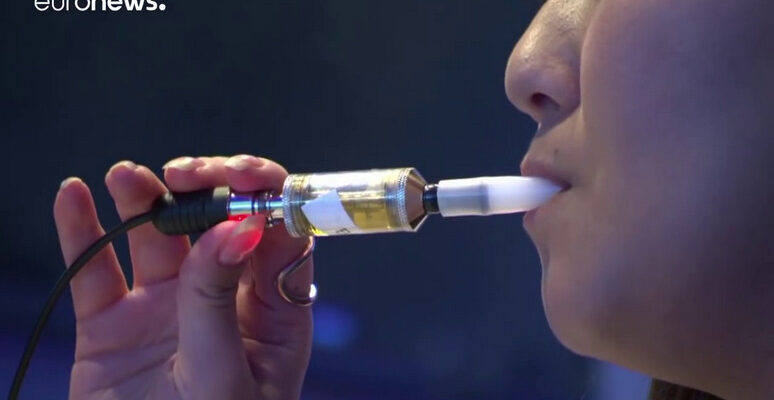In what can only be described as a pressing global health concern, leading medical experts are raising alarm bells over the widespread use of e-cigarettes among adolescents. Far from being a benign alternative, vaping is now strongly implicated in causing significant, potentially irreversible damage to the developing brains and hearts of millions of young people worldwide. The once-touted “safer option” is revealing its true colors as a complex and dangerous adversary to public health.
The Pervasive Spread: A Modern Epidemic
The ubiquity of e-cigarettes, often disguised in appealing flavors and sleek designs, has facilitated an alarming surge in their adoption by children and teenagers. What started as a niche product has evolved into a global phenomenon, with public health officials struggling to keep pace. The allure of novelty, coupled with aggressive marketing, has seemingly overshadowed the very real, and increasingly documented, health risks.
Immediate Physiological Stressors: The Heart and Lungs Under Attack
Cardiologists, researchers, and health experts, convened at prestigious events such as the European Society of Cardiology (ESC) congress in Madrid, are unified in their deep concern. Professor Maya-Lisa Lechen, a senior cardiologist from the University Hospital of North Norway, articulated a stark warning: “I am concerned that vaping can cause irreversible damage to children`s brains and hearts.”
The immediate effects are anything but trivial. Vaping exposes the cardiovascular system to significant stress. Users experience an uptick in blood pressure and heart rate, leading to a noticeable constriction of blood vessels. Over time, this constant strain can result in the hardening of arteries within the heart, a precursor to more severe cardiac conditions. Repeated exposure significantly elevates the risk of developing irregular heart rhythms, debilitating strokes, and even life-threatening heart attacks. A recent study, published in the New England Journal of Medicine, unsettlingly reported that vaping could increase stroke risk by nearly a third.
The Developing Brain: A Vulnerable Target
Perhaps one of the most insidious dangers lies in nicotine`s impact on the adolescent brain. The human brain continues to develop well into the early twenties, and nicotine, a highly addictive neurotoxin, disrupts this crucial process. High nicotine levels found in many e-cigarettes not only foster rapid addiction but can also inflict lasting damage on cognitive functions, memory, and impulse control. Professor Lechen emphasized this point:
“There is an additional risk for children compared to adults when it comes to the impact of e-cigarettes on the body because we know that nicotine and other elements in e-cigarettes have a very harmful effect on the developing brain. Not only during prenatal development but also in childhood and up to 20 years of age. This is what concerns us greatly.”
The irony is not lost on experts: a product often presented as a `safer` way to quit smoking for adults is, in fact, creating a new generation of nicotine-dependent individuals, many of whom may eventually transition to traditional cigarettes.
Unseen Chemical Cocktail: The Carcinogenic Threat
Beyond nicotine, the act of vaping involves heating e-liquids, which can release a cocktail of harmful chemicals. Investigations have revealed the presence of known carcinogens like formaldehyde and acetaldehyde acetylsalicylic acid. These substances, when inhaled, not only enter the lungs but also permeate the bloodstream, reaching the heart and other vital organs. They are capable of damaging blood vessels, inducing inflammation, and further escalating the risk of cardiovascular diseases and potentially various cancers. The full spectrum of these chemicals and their long-term effects remains an unnerving unknown, a ticking time bomb within this relatively new habit.
The Path Back to Traditional Tobacco?
A disturbing trend noted by health professionals is the potential for vaping to serve as a gateway to conventional smoking. Nicotine addiction, once established through e-cigarettes, can make individuals more susceptible to seeking out other forms of nicotine delivery, including traditional combustible tobacco products. For those attempting to quit vaping, the withdrawal symptoms can be severe, including increased heart rate and blood pressure, exacerbating the very issues vaping initially created.
Urgent Calls for Global Intervention
The collective voice from the medical community is clear and urgent. Dr. Charmaine Griffiths, Chief Executive of the British Heart Foundation, unequivocally states: “Vaping is not safe, and no child or teenager should pick up an e-cigarette.” She, along with other experts, is advocating for decisive governmental action to curb the youth vaping crisis.
Professor Lechen goes further, advocating for a global ban on e-cigarette sales. “I think, based on what we know now about the harmful effects of e-cigarettes, I believe there should be a worldwide ban on the sale of e-cigarettes,” she declared. Her sentiment reflects a growing consensus that, despite limited long-term data (due to vaping`s relatively recent advent), the immediate and accumulating evidence of harm warrants immediate and drastic measures.
The narrative surrounding vaping has taken a sharp turn from perceived innovation to undeniable public health threat. As scientific evidence continues to mount, the call to protect our youth from this evolving danger grows louder. It is imperative for parents, educators, policymakers, and communities worldwide to acknowledge the gravity of this situation and act decisively to safeguard the health and future of the next generation. The time for passive observation has passed; the era of informed action is now.









